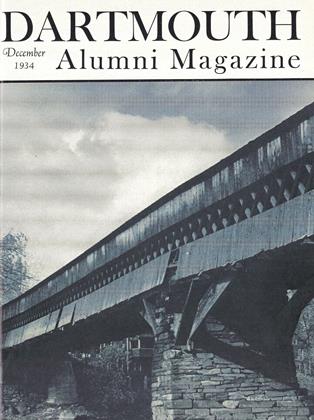Modern research is a wonderful thing particularly as it affects place names and local titles. It now develops that on the eighth of September, 1685, commissioners from Maine and New Hampshire met with certain Indians and signed a treaty of peace. Among the Indian signers was one chief, presumably of the Penacook family, named WAHOWAH. (Reference is to Mather's Magnalia, and Drake's Book ofthe Indians, Book Three, Chapter 8.) The treaty probably included the original 500 gallons which Hovey wrongfully attributed to Eleazar, the song itself being quite out on the matter of dates, since WAHOWAH lived nearly one hundred years before the founding of Dartmouth.
Wahowah was considerably involved in wars and slaughter and himself met a soldier's death in the field or at the stake while warring against the Mohawks in the 1690's. Before this last and fatal campaign he was a participant, despite the peace treaty above mentioned, in attacks at Berwick, Maine, Salmon Falls, Dover, and Pascataqua. At Salmon Falls there was much destruction and slaughter. The records indicate that Wahowah was a warrior of renown, albeit bloody, and it is to be imagined perhaps that his friends and followers used his name as a war cry on many subsequent occasions. He was, however, an Indian living within the present bounds of New Hampshire and played a prominent part in the early wars between French and Indian colonists.
 View Full Issue
View Full Issue
More From This Issue
-
 Article
ArticleHANOVER BROWSING
December 1934 By Herbert F. West '22 -
 Class Notes
Class NotesClass of 1914
December 1934 By Edward Leech -
 Class Notes
Class NotesClass of 1911
December 1934 By Prof. Nathaniel G. Burleigh -
 Class Notes
Class NotesClass of 1918
December 1934 By Allan C. Gottschaldt -
 Article
ArticleHIS EXCELLENCY, THE GOVERNOR
December 1934 By Prof. Herbert W. Hill -
 Class Notes
Class NotesClass of 1910
December 1934 By Harold P. Hinman
The Editors
-
 Article
Article"If Laid End to End"
January 1935 By The Editors -
 Article
ArticleAs the Books Go Tearing By
February 1935 By The Editors -
 Article
ArticleThe President's Addresses
May 1935 By The Editors -
 Cover Story
Cover StoryVoices Crying In The Wilderness
JUNE 1990 By The Editors -
 Class Notes
Class Notes1920
SEPTEMBER 1997 By The Editors -
 Correction
CorrectionCorrection
July/August 2001 By The Editors
Article
-
 Article
ArticleHerewith the time of publication of the alumni
October, 1908 -
 Article
ArticleJOHN MARTIN GILE
August, 1925 -
 Article
ArticleAMERICAN ALUMNI COUNCIL MEETS AT MINNEAPOLIS
JUNE, 1928 -
 Article
ArticleMore About The Dartmouth Crew
January, 1930 -
 Article
ArticleJust Say Da
SEPTEMBER 1991 -
 Article
ArticleLessons from Prison
MARCH 1994 By Erin Murphy '95

